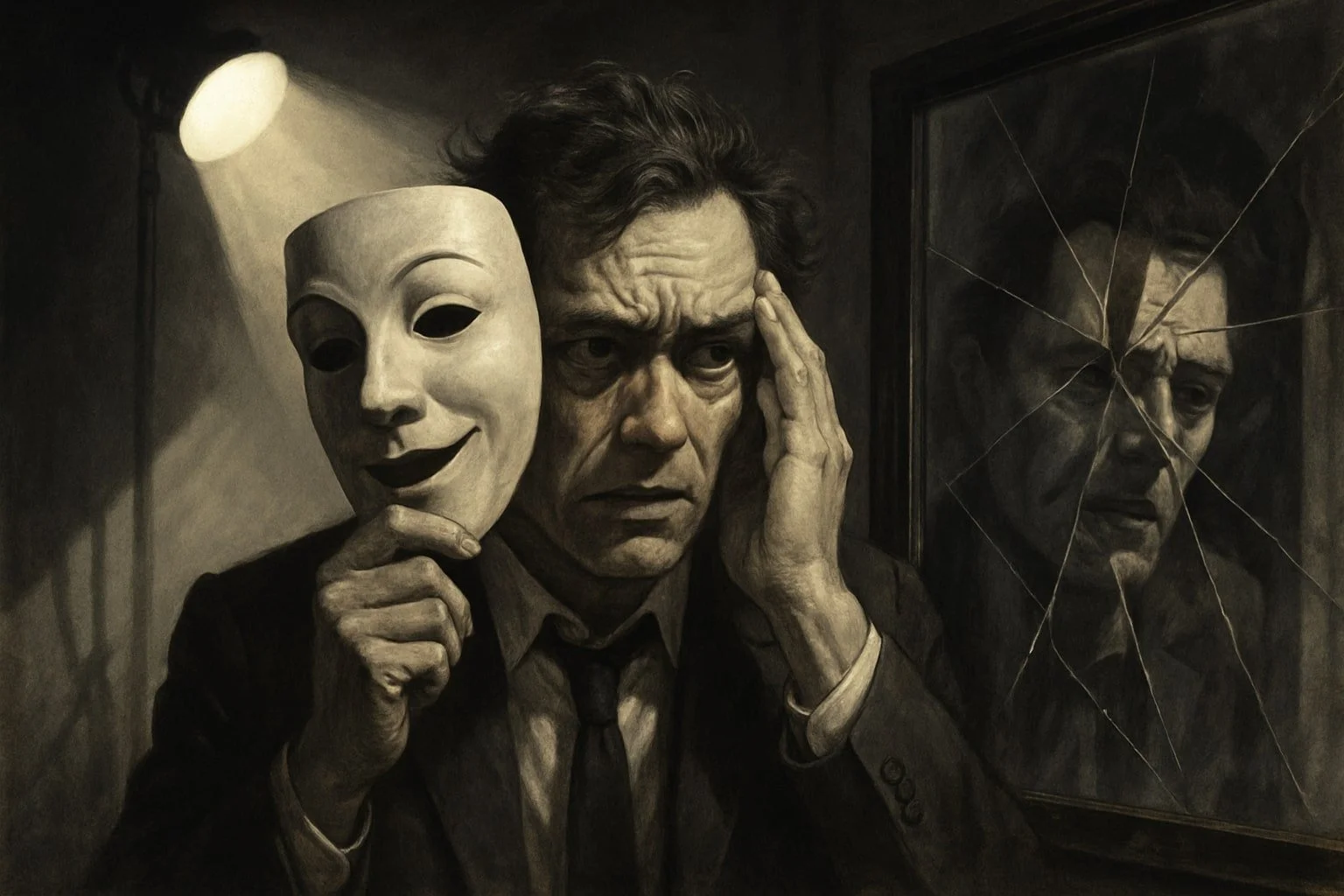In the glimmering world of fame, success often comes wrapped in the allure of prestige and admiration. Celebrities, athletes, influencers, and artists may seem like they live in a dream world, but beneath the polished exterior lies a darker reality that many never see. The spotlight, while seductive, has a shadow side that is not often talked about. Behind every public smile and every red-carpet moment, there’s a price that comes with fame—a price that many are willing to pay, but few fully understand.
In this article, we will delve into the hidden struggles of fame, examining the psychological, emotional, and social costs that often remain obscured from public view. From the pressures of constant scrutiny to the toll it takes on mental health, fame is far from the utopian experience it may seem.
The Illusion of Perfection
In an age dominated by social media, where every moment can be documented and shared, the pressure to maintain an image of perfection is overwhelming. Public figures are often expected to embody ideals of beauty, success, and happiness. They are portrayed as role models, icons of achievement, and paragons of the life everyone aspires to lead. However, this image of flawlessness is more often than not, an illusion carefully curated by teams of publicists, stylists, and digital editors.
The problem with this image is that it’s unattainable. What the public sees is the filtered, polished version of reality, while the individual behind that image struggles with personal challenges, insecurities, and a deep sense of isolation. For example, many celebrities have confessed to battling body dysmorphia, anxiety, and depression, yet their audiences continue to demand an air of invincibility.
Fame comes with an ever-present expectation to be “on” all the time. The fear of being caught off-guard or appearing vulnerable in front of millions of people often leads to heightened stress. The consequences? A fragile sense of self and an emotional disconnect from one’s true identity.
The Price of Privacy
One of the most jarring aspects of fame is the erosion of privacy. When a person becomes a public figure, they essentially surrender their personal life to the scrutiny of others. Every relationship, every misstep, and every awkward moment is fodder for tabloids and social media. For many, this loss of privacy can be a suffocating experience.

The line between the public and private self becomes increasingly blurry. A celebrity’s family, friends, and even their romantic relationships can be dissected in the media. When an individual’s every move is documented, the desire for solitude and anonymity becomes a distant dream. The famous are often followed, photographed, and reported on—regardless of whether they want it or not. The psychological cost of losing one’s privacy is profound; the constant surveillance can feel like living in a glass house, where any mistake could be magnified and judged by millions.
Moreover, with the rise of social media, the boundary between personal and professional life is even more blurred. Celebrities are expected to share their private moments with followers, giving rise to the phenomenon of “oversharing.” But when these personal stories are transformed into content, it can make them feel like mere commodities, leading to burnout and a sense of exploitation.
The Paradox of Loneliness
It is often said that fame comes with a host of admirers, friends, and loyal supporters. However, the opposite is frequently true. The more famous a person becomes, the more isolated they may feel. There is a pervasive loneliness that comes with being constantly in the spotlight.
Celebrities often struggle to form genuine relationships because they can never be certain if someone is truly interested in them for who they are, or if they are simply looking for a connection to fame. Trust becomes a rare commodity, and many public figures find themselves surrounded by sycophants and opportunists. In turn, this creates a deep sense of emotional isolation.
The loneliness of fame can also stem from the inability to engage in everyday activities without being mobbed by fans or photographed by paparazzi. Simple pleasures—like going for a walk in the park or having a meal at a restaurant—become impossible without attracting attention. Over time, this can lead to feelings of alienation and emotional exhaustion.
Mental Health and the Pressure to Perform
Perhaps the most insidious dark side of fame is its effect on mental health. The pressure to constantly perform, meet expectations, and maintain a flawless image can take a severe toll on a celebrity’s psychological well-being. The fear of failure, the pressure of being constantly in the public eye, and the relentless demands of fame can lead to conditions like anxiety, depression, and burnout.
Celebrities often feel like they are trapped in a never-ending cycle of performance. They are expected to be entertaining, inspiring, and charismatic all the time—whether they’re on stage, on screen, or on social media. But behind the performances, many of these individuals struggle with intense emotional pain. Mental health issues in the entertainment industry are alarmingly prevalent, with high-profile cases of addiction, eating disorders, and self-harm.
Many celebrities have spoken out about their struggles with mental health, and while this has helped reduce stigma, the constant media cycle can make it harder for them to heal. A vulnerable moment or a mental health crisis can be sensationalized, turning a personal battle into public spectacle.
The Curse of Public Scrutiny
Fame subjects individuals to an endless cycle of judgment, criticism, and praise. While the praise can be gratifying, it often comes with the caveat of extreme scrutiny. For example, public figures’ every statement is analyzed, every outfit is critiqued, and even their political beliefs are often scrutinized. The public expects them to be experts in everything—from climate change to politics to social issues.
The stakes of being a public figure are high. A single misstep, whether it’s a controversial comment or a misunderstood action, can lead to backlash and public shaming. With social media amplifying every opinion, celebrities face a constant barrage of praise and condemnation. The effect is a culture of fear—fear of saying the wrong thing, fear of disappointing fans, and fear of falling from grace.
This pressure can lead to a sense of constant anxiety and self-doubt. When every word and action is under a microscope, it can be hard to maintain a sense of self-worth. The result is often an emotional burnout that is difficult to recover from.
The Financial Burden
While fame can bring in tremendous wealth, it also comes with its own set of financial pressures. The most successful public figures may earn millions, but they often find that maintaining their lifestyle comes at a great cost. Luxurious homes, personal security, PR teams, agents, and managers all require a significant financial outlay. The pressure to maintain an image of wealth and success can also lead to financial decisions that may not be in a celebrity’s best interest.

Moreover, the financial pressure doesn’t end with public appearances. Many celebrities feel compelled to spend lavishly on personal branding, marketing, and endorsements, in a bid to maintain relevance. In many cases, the cycle of maintaining an extravagant lifestyle can be more expensive than the income generated by fame.
For rising stars, the financial burden can be even more intense. They may find themselves in debt due to the cost of getting into the industry, which includes everything from taking acting lessons to paying for agents, managers, and other expenses. The financial instability that can accompany fame is an issue often overlooked by outsiders, but it is a serious challenge for many individuals.
The Cost of Relationships
Fame often complicates personal relationships, especially romantic ones. Being constantly under the microscope can erode intimacy and trust. Relationships may become strained as one or both partners are unable to handle the pressure of living in the public eye. In some cases, the relationship becomes a spectacle itself, with every argument, breakup, and reunion playing out in the tabloids.
There is also the issue of how fame affects family life. Children of celebrities, for example, may grow up in a world of cameras and media scrutiny, which can create unique challenges in terms of their development and sense of privacy. For some, growing up with famous parents can lead to a loss of normalcy, causing feelings of resentment or rebellion.
The emotional cost of being constantly surrounded by media attention can make it difficult to form authentic, lasting relationships. True connection becomes harder to achieve when you are seen as a brand or an object of public fascination rather than a person with needs, emotions, and vulnerabilities.
Conclusion: The Hidden Costs of the Spotlight
The world of fame is glamorous, but the costs associated with it are often hidden from view. Behind the glitz and the glamour, public figures pay a high price for their success—emotionally, mentally, and socially. The constant scrutiny, the invasion of privacy, the fear of failure, and the toll on relationships all contribute to a darker side of fame that few see but many experience.
Fame, it seems, is a double-edged sword. While it offers wealth, recognition, and opportunities, it also brings with it a heavy emotional toll. For many, the price of fame is a burden they bear in silence, hidden behind the smile that the public knows so well.
In the end, the cost of the spotlight is not always worth the glow.










































